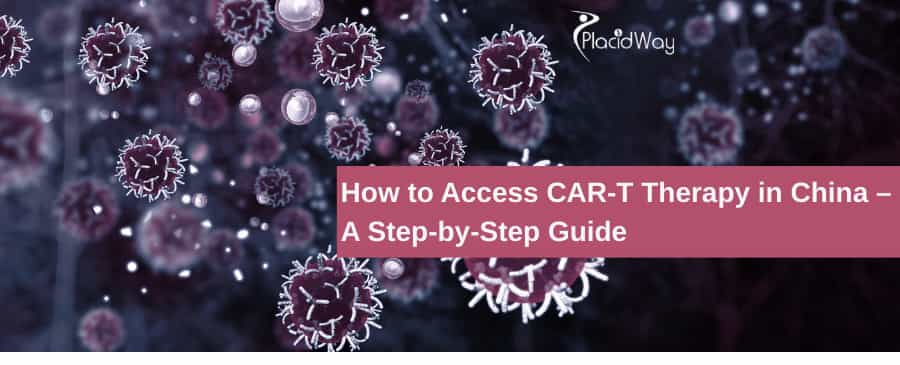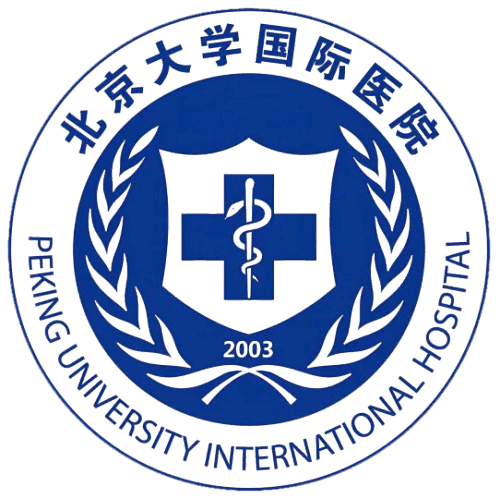
Chimeric Antigen Receptor T-cell (CAR-T) therapy is transforming cancer treatment by using the body’s immune system to fight cancer. China has become a global leader in CAR-T therapy, offering advanced treatments at competitive costs. For patients seeking CAR-T therapy in China, understanding the process, eligibility criteria, costs, and potential risks is essential. This guide will walk you through everything you need to know to access CAR-T therapy in China.
Key Insights at a Glance
- CAR-T therapy in China costs between $120,000 and $360,000 USD.
- Eligibility depends on prior treatments and medical evaluations.
- The treatment process includes cell extraction, modification, and infusion.
- Potential side effects include cytokine release syndrome and neurotoxicity.
- Travel, language barriers, and insurance coverage should be considered.
What is CAR-T Therapy?
CAR-T therapy is a form of immunotherapy that modifies a patient’s T-cells to recognize and attack cancer cells. It has shown remarkable success in treating certain blood cancers, such as leukemia and lymphoma. The process involves extracting T-cells, genetically modifying them, and reinfusing them into the patient’s body.
This personalized treatment is highly effective, with some patients achieving long-term remission. However, it is also complex, requiring specialized medical expertise and facilities.
Who is Eligible for CAR-T Therapy in China?
Not every patient qualifies for CAR-T therapy. Specific eligibility criteria include:
- Diagnosis: CAR-T therapy is primarily used for blood cancers like acute lymphoblastic leukemia (ALL) and diffuse large B-cell lymphoma (DLBCL).
- Previous Treatments: Patients must have undergone at least two prior lines of treatment without success.
- Health Condition: A comprehensive medical evaluation is necessary to ensure the patient can tolerate the therapy.
- Age Requirements: Some CAR-T treatments have age restrictions depending on the type of cancer being treated.
If you or a loved one meet these criteria, the next step is to explore treatment options in China.
Step-by-Step Guide to Accessing CAR-T Therapy in China
Consultation with a Specialist
Start by consulting with an oncologist who specializes in CAR-T therapy. This can be done in your home country or by directly contacting a hospital in China. A medical review will determine if CAR-T is suitable for your condition.
Choosing a Hospital or Medical Center
China has several leading hospitals offering CAR-T therapy. Research and select a hospital with experience in CAR-T treatments. Consider factors such as reputation, success rates, and available CAR-T products.
Medical Evaluation and Pre-Treatment Tests
Once accepted for treatment, you will undergo a series of tests, including:
- Blood tests to check overall health and immune function.
- Imaging tests to assess cancer progression.
- Heart and lung function tests to ensure you can handle the therapy.
T-Cell Collection (Leukapheresis)
A key part of CAR-T therapy is collecting T-cells from your blood. This process, known as leukapheresis, takes a few hours and involves filtering out T-cells while returning the rest of your blood.
Genetic Modification of T-Cells
Your collected T-cells are sent to a laboratory, where they are genetically modified to express chimeric antigen receptors (CARs). These receptors enable T-cells to recognize and attack cancer cells.
Cell Expansion and Quality Testing
The modified T-cells are multiplied in the lab to reach the necessary quantity for treatment. This process takes about 2–3 weeks, after which the cells undergo rigorous quality testing.
Pre-Infusion Conditioning Therapy
Before receiving CAR-T cells, patients undergo a short course of chemotherapy to prepare the body for the infusion. This conditioning reduces existing immune cells to create space for the modified T-cells.
CAR-T Cell Infusion
The prepared CAR-T cells are infused back into the patient’s bloodstream in a single session. Patients are closely monitored for any immediate reactions.
Post-Treatment Monitoring and Recovery
Patients remain in the hospital for at least a few weeks for close observation. Doctors monitor for side effects, such as cytokine release syndrome (CRS), which can cause flu-like symptoms, and neurotoxicity, which may lead to confusion or seizures.
Cost of CAR-T Therapy in China
The cost of CAR-T therapy in China varies depending on the hospital, type of CAR-T product, and additional medical expenses. Below is a breakdown of estimated costs:
| Expense Category | China (USD) | USA (USD) | Europe (USD) | India (USD) |
|---|---|---|---|---|
| CAR-T Cell Production | $80,000 - $200,000 | $250,000 - $300,000 | $220,000 - $280,000 | $20,000 - $80,000 |
| Hospitalization & ICU | $20,000 - $50,000 | $50,000 - $100,000 | $40,000 - $90,000 | $10,000 - $30,000 |
| Pre-Treatment Tests | $5,000 - $15,000 | $10,000 - $25,000 | $8,000 - $20,000 | $3,000 - $10,000 |
| Chemotherapy Conditioning | $5,000 - $10,000 | $10,000 - $20,000 | $7,000 - $15,000 | $2,000 - $8,000 |
| Medications & Side Effect Management | $10,000 - $30,000 | $40,000 - $80,000 | $30,000 - $60,000 | $5,000 - $15,000 |
| Total Estimated Cost | $120,000 - $360,000 | $373,000 - $475,000 | $350,000 - $450,000 | $40,000 - $120,000 |
Patients should also factor in travel, accommodation, and post-treatment care expenses when planning for treatment in China.
Potential Risks and Side Effects
While CAR-T therapy is highly effective, it comes with risks, including:
- Cytokine Release Syndrome (CRS): A severe immune reaction causing fever, low blood pressure, and difficulty breathing.
- Neurotoxicity: Symptoms may include confusion, seizures, or difficulty speaking.
- Infections: Due to a weakened immune system, patients are at higher risk of infections.
- Long-Term Effects: Some patients experience ongoing immune-related issues that require management.
Real Stories: Patients Share Their CAR-T Therapy Journey in China
Here are detailed patient remarks from individuals who have undergone CAR-T therapy in China. These testimonials highlight their experiences with the treatment, costs, medical facilities, and recovery process.
Emily, 48, USA – “China Gave Me a Second Chance”
"After being diagnosed with relapsed lymphoma, my options in the U.S. were limited due to the high cost of CAR-T therapy. I researched alternatives and found a reputable hospital in China. The doctors were knowledgeable, and the process was well-organized. The total cost, including travel and accommodation, was still significantly lower than in the U.S. The side effects were challenging, especially fever and fatigue, but after a few weeks, I started feeling better. Six months later, my scans showed no signs of cancer. Choosing China for CAR-T therapy was the best decision I ever made."
Raj, 55, India – “Affordable and Effective Treatment”
"My doctors in India told me about CAR-T therapy, but it wasn’t widely available here. I looked at options in the U.S. and Europe, but the costs were overwhelming. A friend suggested China, where CAR-T was more affordable. The process took around two months, from consultation to infusion. The medical team explained everything clearly, and they provided excellent care during my hospital stay. After the therapy, I had some side effects, including fever and muscle weakness, but they were manageable. Today, my blood cancer is in remission, and I’m grateful for the chance to live a normal life again."
Liu, 39, China – “A Life-Saving Breakthrough”
"I was diagnosed with acute lymphoblastic leukemia (ALL) and had already tried multiple rounds of chemotherapy. When my doctor suggested CAR-T therapy, I was hesitant because it was still a new treatment in China. However, after understanding the benefits, I decided to go for it. The hospital staff were incredibly supportive throughout the process. After the infusion, I experienced mild neurotoxicity, but the doctors managed it well. Within a few months, my condition improved dramatically. CAR-T therapy gave me a future I never thought possible."
FAQs About CAR-T Therapy in China
Is CAR-T therapy in China safe?
Yes, many hospitals in China follow strict safety protocols. However, like all medical treatments, CAR-T therapy carries risks that should be discussed with a specialist.
How long does the entire treatment process take?
The process from consultation to post-infusion monitoring can take 6–12 weeks, depending on individual response and hospital protocols.
Can international patients access CAR-T therapy in China?
Yes, many hospitals in China accept international patients. Some hospitals even offer translation services and international patient coordinators.
Does insurance cover CAR-T therapy in China?
Most international insurance plans do not cover CAR-T therapy abroad. Patients should check with their provider or explore financial assistance programs.
What are the chances of success with CAR-T therapy?
Success rates vary based on cancer type and individual factors. Some studies report remission rates of 40–90% in blood cancers.
Are there language barriers for international patients?
Yes, but many major hospitals have English-speaking staff or provide interpreters for international patients.
What happens if side effects occur?
Doctors monitor patients closely for side effects and provide immediate treatment if complications arise. ICU support is available if needed.
Why Choose PlacidWay for CAR-T Therapy in China?
- Trusted Global Medical Tourism Platform – PlacidWay connects international patients with top-quality healthcare providers in China.
- Personalized Guidance – Dedicated patient coordinators help you navigate the entire treatment process.
- Cost Transparency – Get clear information on treatment pricing without hidden fees.
- Accredited Medical Facilities – Partnering with well-established institutions that specialize in CAR-T therapy.
- Multi-Language Assistance – Overcoming language barriers with professional translation and interpretation services.
- Efficient Treatment Coordination – Faster appointment scheduling and streamlined communication with specialists.
- Post-Treatment Follow-Up – Continued support and medical consultation after returning home.
Take the Next Step Towards CAR-T Therapy in China
CAR-T therapy in China offers hope for patients with hard-to-treat cancers. If you’re considering treatment, consulting with a specialist is the first step. Whether you need guidance on eligibility, costs, or logistics, expert consultation can help you make informed decisions. Start your journey today!


.png)


Share this listing